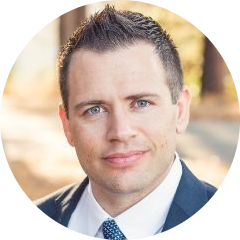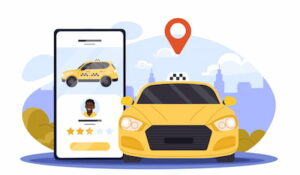- What is rideshare insurance for Uber?
- How does Uber insurance work?
- What Uber insurance covers
- Do you need both personal and rideshare insurance?
- Rideshare earnings calculator
- What type of insurance do rideshare drivers need?
- How much will my insurance go up if I drive for Uber?
- How to compare Uber and rideshare car insurance quotes
- Sources
- FAQ: Insurance and Uber
What is rideshare insurance for Uber?
Rideshare insurance provides you and your vehicle coverage when driving for a ridesharing service such as Uber. It kicks in as soon as you turn on the app.
Your personal auto insurance provider not only won’t cover you but may even drop your policy if they discover you’ve been driving without separate rideshare coverage. Therefore, maintaining your own insurance policy is essential to fill any potential coverage gaps. So, if you want to become a rideshare driver, you’ll need to either have a commercial auto insurance policy or a personal auto insurance policy that offers rideshare coverage as an endorsement.
Learn more about the other requirements for an Uber or Lyft driver.
How does Uber insurance work?
Most rideshare companies – including Uber – will provide specific rideshare insurance to drivers up to the state limits. Delivery services like Grubhub and DoorDash also require specific insurance coverage for their drivers. If that’s the case, you aren’t required to purchase a separate rideshare insurance policy. However, Uber’s insurance policy doesn’t cover you when the app is closed. During these times, your personal auto policy provides coverage.
When the app is open, Uber’s insurance provides liability coverage at certain points during your trip. Your rideshare-friendly policy will provide coverage during other phases of the trip, depending on what’s outlined in the policy.
This is all dictated by the three main coverage periods insurers use to separate a rideshare trip:
Period 1: The Uber app is on, but you’re waiting for a ride request.
Period 2: You’ve accepted a ride request and are on your way to pick up a passenger.
Period 3: The passenger is in your car. This period ends when the passenger exits the car.
If you get into an accident while working for Uber, you need to know whether your personal policy or Uber’s policy will provide coverage during each specific period so that your claimAn insurance claim is a request you make to your insurance company for coverage after your car is damaged or you have an accident. You can file a claim online, by phone, or in writing. isn’t delayed or denied.
Here’s a list of companies offering rideshare insurance by state.
What Uber insurance covers
Uber’s Driver-Partner Insurance provides different levels of coverage across Periods 1, 2 and 3. Additional coverage options, such as Optional Injury Protection, are available to provide drivers with extra insurance benefits. Coverage varies significantly depending on whether a passenger is in your car. Here’s a breakdown:
When driving for rideshare services like Uber and Lyft, it is crucial to understand the insurance policies and the extent of coverage provided by the companies, including related expenses that may arise from accidents.
Period 1: Waiting for a ride
Uber's liability limits are relatively low during Period 1. The company doesn't offer comprehensive and collision coverage during this phase of the trip.
- Liability: Uber offers third-party liability coverage(assuming your personal insurance doesn't apply) of $50,000 in bodily injury per person, up to $100,000 in bodily injury per accident and $25,000 in property damage per accident.
Period 3: From pickup request to drop-off
Your liability is well-covered, but collision and comprehensive coverage have certain caveats.
- Liability: If you get into a covered accident on your way to pick up passengers or while transporting them, Uber offers $1 million in third-party liability coverage.
- Uninsured/underinsured motorist: Uber provides uninsured/underinsured motorist bodily injury coverage for you and your passengers if you get into a covered accident and the other driver is at fault and is uninsured or underinsured.
- Collision and comprehensive: Uber offers comprehensive and collision insurance that will cover up to your car’s actual cash value. However, this coverage is contingent and comes with a $2,500 deductible, which means you’ll have to pay $2,500 out-of-pocket before Uber’s coverage kicks in to cover your claim.
Uber’s coverage levels, especially for liability, leave coverage gaps that increase your out-of-pocket costs. That’s especially true if your car is damaged or totaled or if you and other passengers are injured and have medical expenses. In most U.S. states, you can purchase optional injury protection to cover the gaps if you are hurt in an accident. This insurance is specifically designed for Uber drivers.
For liability coverage, most insurance experts recommend $100,000 of bodily injury coverage per person, $300,000 of bodily injury coverage per accident and $100,000 of property damage coverage. Uber insurance coverage is significantly below these thresholds.
Expert Advice

Anthony Martin
Founder and CEO of Choice Mutual, an insurance agency in Reno, Nevada
Uber's deductibleThe deductible is the amount you pay out of pocket for a covered loss when you file a claim. is also significant. "Even with adequate insurance coverage, you can be out thousands in the case of an accident that causes property or bodily damage," says Anthony Martin. "For many Uber drivers, $2,500 is a risk too big to take."
Another important point to keep in mind is that Uber only covers comprehensive and collision insurance coverage if you maintain them on your personal auto insurance. "Even if you were exclusively driving your vehicle for Uber, if you skip these two essential insurance protections, Uber won't cover you," he says.
Do you need both personal and rideshare insurance?
Regardless of what insurance Uber offers, every driver should have some form of personal insurance coverage, whether it’s a liability or comprehensive policy.
However, if you’re a rideshare driver, you should know that your personal auto policy only covers your vehicle’s personal use. You’ll need a commercial policy if you’re driving your car for business. Additionally, you may want to purchase optional injury protection to provide increased financial security for medical expenses and other benefits if you are injured while operating the app during your shifts.
“Traditional car insurance is not set up for the liability and medical payments exposure, and the liability a driver exposes himself or herself to while getting paid to transport individuals,” says Ben Galbreath, an agent with Wallace & Turner, an independent insurance agency in Springfield, Ohio.
Personal car insurance policies all have a clause that excludes explicitly commercial activities like ridesharing. Legally, your insurer can deny any claim if you drive for Uber and get into an accident.
What type of insurance do rideshare drivers need?
There are three main types of insurance every driver should consider. Rideshare drivers, in particular, should maintain comprehensive and collision coverage.
- Liability: Liability insurance is mandatory in every state. It covers injuries to another person or damage to their property due to an accident in which you’re at fault. Liability insurance will never cover your own car or your own injuries. Some states have low limits that may not be enough to cover damage or injuries to other drivers if you get into an accident. This means you’ll have to pay out-of-pocket to fill the gap, so you may want to purchase additional liability coverage.
- Collision/comprehensive: These coverages are not mandatory in every state. However, if you have an auto loan on your car, your lender typically requires this coverage. Collision coverage will pay to repair or replace your vehicle if it is damaged in an accident. A comprehensive policy covers car damage that isn’t related to an accident, such as hail or fire damage or vandalism. Resist the temptation to skip this coverage unless you’re prepared to write a check for another vehicle.
- Uninsured/underinsured motorist: Some states require this coverage. If you’re involved in an accident and the other driver is at fault but doesn’t have car insurance, uninsured motorist insurance covers your injury-related medical expenses and those of your passengers. It also can cover your lost wages, pain and suffering. If the driver who hit you has insurance with low coverage limits, underinsured coverage will cover the difference. For this type of coverage, you should choose coverage amounts that match your own liability limits.
Rideshare drivers should also have rideshare insurance uber. That coverage can come through an endorsement added to their personal auto policy or via a separate commercial policy.
“Rideshare insurance is the best option for drivers since it covers them during the period 1 gap (app on, no passenger yet) and the companies won’t drop drivers from the policy like they would if you had a personal policy and signed up for Uber/Lyft,” says Harry Campbell, owner and founder of The Ride Share Guy blog and podcast.
Galbreath says rideshare drivers should consider their personal assets, such as home, car, bank accounts and investments when thinking about coverage.
"Auto claims have high bodily injury payouts, so medical bills and liability payment could bankrupt individuals if the right type of coverage isn't purchased," he adds.
Galbreath says if you're looking for coverage, you should take the time to compare policies and that you shouldn't base your decision on price alone.
"My advice would be to look into coverage options and pay for what you need to be protected based on your personal liability," he says. "The cost of insurance would not come close to the potential loss a driver could risk personally or professionally."
How much will my insurance go up if I drive for Uber?
The insurance coverage that Uber provides to its drivers is free. If you buy a separate rideshare insurance policy, the cost will depend on a number of factors. In general, though, most people can get it for less than $30 per month.
How to compare Uber and rideshare car insurance quotes
If you decide to buy a separate rideshare insurance policy, it's a good idea to get several quotes before making a decision. Most major insurers will allow you to get a quote online after providing a few personal details. There are also online insurance marketplaces that will pull quotes from several companies at once based on your information. If you prefer, you can call each company individually to inquire about coverage options and costs.
Sources
- Uber. 'Insurance at Uber'. Accessed August 2025.
FAQ: Insurance and Uber
Will driving for Uber affect my car insurance?
If you drive for a ridesharing company, your personal insurance policy premiums will likely increase. This is because you'll be spending more time on the road, which increases your risk of an accident.
Is rideshare insurance expensive?
Though purchasing separate rideshare insurance means adding to the overall cost of your premiums, these policies are fairly low-cost. Most people pay less than $30 per month.
Do you need rideshare insurance?
Yes, you need to have insurance coverage while driving for a rideshare company, because your personal policy will not cover driving for commercial purposes.
Do Uber and Lyft provide insurance?
Both Uber and Lyft provide their drivers with insurance coverage. However, the coverage is minimal and only enough to satisfy state requirements. You might need to supplement these policies to ensure you have enough coverage. Without enough coverage, you’ll be on the hook for out-of-pocket costs if you get in an accident.
Does Uber insurance cover rental cars?
No. Uber only provides liability insurance, and in some cases, comprehensive coverage. It does not reimburse drivers for a rental car if they are in an accident and need alternative transportation. In this case, you would need to check with your personal policy or separate rideshare policy.





